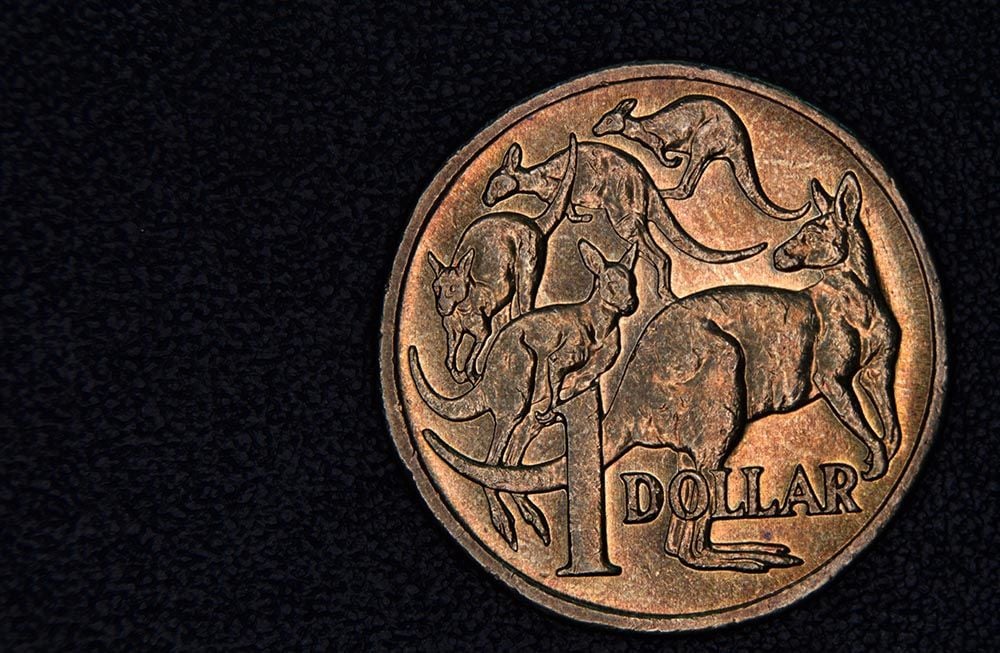Australian Dollar to "Weaken over the Remainder of this Year and Next": Capital Economics
- Written by: Gary Howes

Image © Adobe Images
The Australian Dollar is expected to weaken over coming months and through 2023 by analysts at Capital Economics, the independent research provider and consultancy.
Analysts say two factors in particular will weigh on the Aussie Dollar: 1) the country's slowing housing market and 2) a deterioration in the country's terms of trade as China slows down.
"We think Australia’s terms of trade will deteriorate as China’s economy, and its property sector in particular, continues to falter," says Thomas Mathews, Senior Markets Economist at Capital Economics.
China remains an integral part of Australia's economic outlook as it is the primary destination for Australian exports; a slowing Chinese economy could therefore negatively impact on Australia's own growth potential.
"We suspect the prices of Australia’s metals exports will fall before long," says Mathews.
The research comes as the Australian Dollar proves to be one of 2022's better performing currencies: only the U.S. and Canadian Dollars have outperformed.
According to some analysts, part of the outperformance is linked to the surge in commodity prices, which have stemmed in part from Russia's invasion of Ukraine.
However Capital Economics reckons the Aussie Dollar "hasn’t seemed to benefit much from the improvement in its terms of trade in recent years, especially in contrast with the boost it received earlier this century."
Above: Australian terms of trade and AUD/USD. Image courtesy of Capital Economics.
Compare GBP to AUD Exchange Rates
Find out how much you could save on your pound to Australian dollar transfer
Potential saving vs high street banks:
A$4,875.00
Free • No obligation • Takes 2 minutes
"That probably reflected offsetting factors including, at times, moves in yield differentials. With that, in our view, no longer providing much support, we suspect further falls in commodity prices will weigh on the Aussie," says Mathews.
The slowing housing market is meanwhile expected to weigh on the Australian currency as the impacts of recent Reserve Bank of Australia (RBA) hikes work through.
"There are already signs that the country’s housing sector is beginning to slow: residential construction, for example, plunged almost 7% q/q in Q2. That seems to have partly reflected supply shortages. But the sector is sensitive to interest rate rises, and with house prices falling in August at their fastest rate since 1983, we suspect it won’t be long before it finds itself in deeper trouble," says Mathews.
Capital Economics thinks investors are underestimating how soon RBA rate hikes will be reversed as authorities respond to a housing market deterioration.
"We expect the RBA to reverse course next year, as it has during past housing downturns. That, we think, will see Australian government bond yields fall next year – and by much more than the yields of US Treasuries – putting downward pressure on the Aussie dollar," says Mathews.
"We expect the Australian dollar to weaken over the remainder of this year and next," he adds.
Compare GBP to AUD Exchange Rates
Find out how much you could save on your pound to Australian dollar transfer
Potential saving vs high street banks:
A$4,875.00
Free • No obligation • Takes 2 minutes





